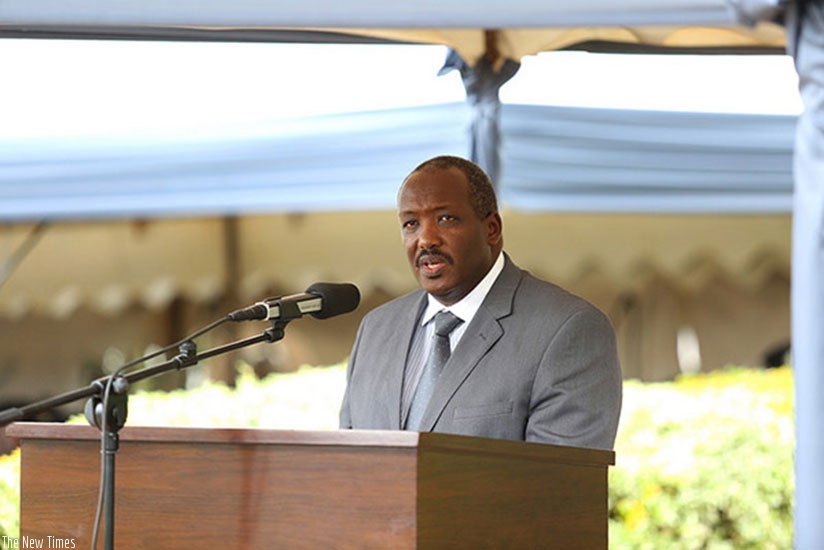
Kwibuka23: Increase punishment for Genocide ideology, says Ibuka.
By James Karyhanga, The New Times.
Not only should the law punishing the crime of Genocide ideology be made tougher but the government and civil society too need to up their momentum in the crusade, says the umbrella body of Genocide survivors’ organizations, Ibuka.
Ibuka president Professor Jean Pierre Dusingizemungu has told Sunday Times that no one should be duped into believing that the Genocide ideology has declined and, he insists, it is a real and a growing threat that must be confronted with more force than is being done presently.
“We need more and better coordinated efforts, especially focused on our young people. We must, together with parliament and the entire government and civil society, take it to schools and have a thorough discussion with our youth.
“In the schools, it is paramount that we don’t leave everything in the hands of teachers, as some might harbor the ideology. Genocide ideology is surely an issue mostly affecting the older generation, but let’s also give the youth more attention”.
According to Prof. Dusingizemungu, “a special programme for schools” where the civil society and the government coordinate in a robust crusade against genocide ideology, is suitable.
During such a programme, he proposed, the stakeholders should engage students in all schools at least once in each term and “parents must be invited and must attend” as they too need to be engaged.
Secondly, Dusingizemungu said, besides strengthening the law relating to the punishment of the crime of Genocide ideology, the entire justice apparatus – systems of law enforcement and prosecution – need to be more forceful when dealing with the crime.
“The crime of genocide ideology is a serious crime against humanity. The penalties must equally be serious. Nothing here should be taken lightly.”
In the 2008 law relating to the punishment of the crime of Genocide ideology, the latter is defined as an aggregate of thoughts characterized by conduct, speeches, documents and other acts aiming at exterminating or inciting others to exterminate people basing on ethnic group, origin, nationality, region, color, physical appearance, sex, language, religion or political opinion, committed in normal periods or during war.
At the time this law was enacted, conviction of the crime of genocide ideology attracted up to 25 years of imprisonment.
However, later when the laws were reviewed to have all punishments prescribed by the penal code, jail term on conviction of genocide ideology was reduced to 5-9 years on conviction.
The crime is characterized in any behavior manifested by facts aimed at dehumanizing a person or a group of persons with the same characteristics.
This can be in the manner of: threatening, intimidating, degrading through defamatory speeches, documents or actions which aim at propounding wickedness or inciting hatred; marginalizing, laughing at one’s misfortune, defaming, mocking, boasting, despising, degrading creating confusion aiming at negating the genocide which occurred, stirring up ill feelings, taking revenge, altering testimony or evidence for the genocide which occurred; and killing, planning to kill or attempting to kill someone for purposes of furthering genocide ideology.
Cases of assault on survivors often seem to escalate in the country in April when the nation starts paying homage to the victims of the 1994 Genocide against the Tutsi.
Police spokesperson, Assistant Commissioner of Police, Theos Badege, this week disclosed that the force had apprehended three men in connection with the killing of a Genocide survivor’s cow in Kicukiro District, recently.
Badege also noted a case in Rubavu District, where three men left a commemoration event early and went to set ablaze a house belonging to an 80-year old Genocide survivor. Police are also investigating circumstances under which another survivor, Christine Iribagiza, 58, was murdered in her home in Kicukiro District on Thursday.
The police, however, maintain there is hope and report that since this month began, they recorded 24 cases related to genocide ideology. This, it is noted, indicate about 50 per cent decrease compared to last year.
